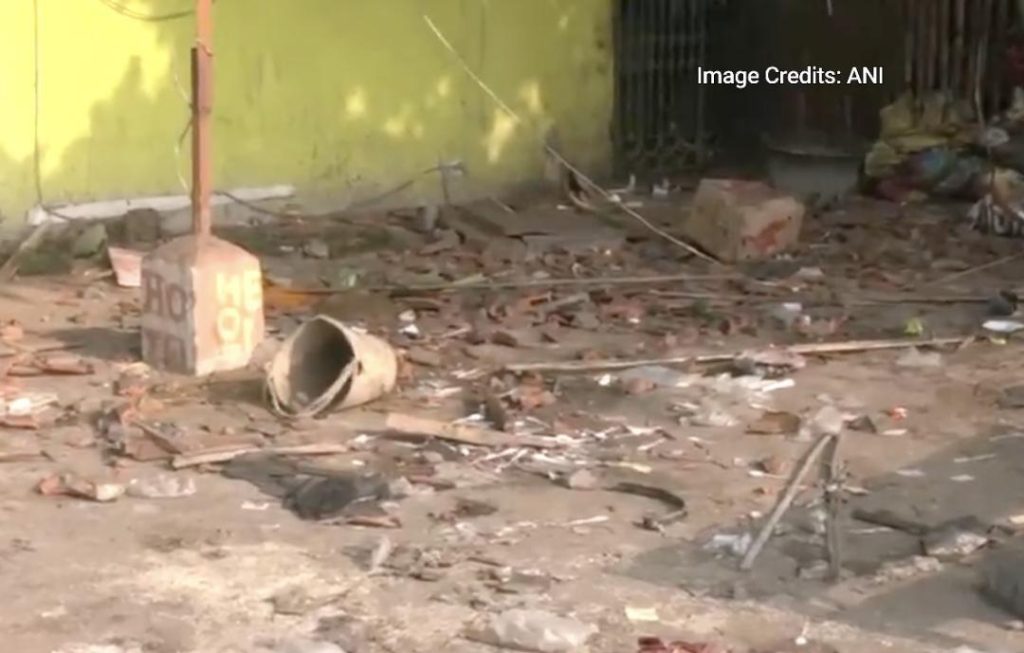
Title: 5,000 Disrupt Services & Pelt Stones at Bengal Railway Station during Protest against Waqf Act
In a recent development, thousands of people gathered at the Dhulianganga railway station in West Bengal to protest against the Waqf Act, causing disruptions to train services and affecting the movement of the Kamakhya-Puri Express. The protest, which took place on Friday, resulted in a significant impact on the railway network, with nearly 5,000 people participating in the demonstration.
According to sources, the mob gathered at the station after 1 pm and began pelting stones at the railway property, causing damage to various facilities. The agitation also disrupted the signal system, making it impossible for trains to pass through the station.
The Kamakhya-Puri Express, which is an important rail route, was severely affected by the protest. The train was forced to halt at the station, causing inconvenience to passengers who were traveling on it. The delay was significant, and passengers were left stranded at the station, waiting for the train to resume its journey.
The protest was a reaction to the West Bengal government’s decision to implement the Waqf Act, which aims to regulate and manage Waqf properties in the state. The Act has been a subject of controversy, with many opposing it, citing concerns over the potential misuse of the law.
The government has maintained that the Act is intended to protect and preserve Waqf properties, which are considered sacred by the Muslim community. However, critics argue that the law will give the government excessive powers to seize and manage properties, which could lead to the misuse of funds.
The protest at the Dhulianganga railway station was a manifestation of the growing discontent and opposition to the Waqf Act. The protesters, who included local residents and activists, demanded that the government withdraw the law and address their concerns.
The disruption caused by the protest has had significant consequences for the railway network. The Eastern Railways, which is responsible for managing the railway services in the region, has issued a statement expressing concern over the incident. The railway authorities have promised to take steps to ensure that such incidents do not recur in the future.
The protest has also raised concerns about the safety of passengers and the integrity of the railway network. The incident highlights the need for better communication and coordination between the railway authorities and local authorities to prevent such disruptions.
In conclusion, the protest at the Dhulianganga railway station was a significant event that highlights the growing opposition to the Waqf Act in West Bengal. The disruption caused by the protest has had significant consequences for the railway network, and it is essential that the government addresses the concerns of the protesters and takes steps to prevent such incidents in the future.
News Source: https://x.com/ANI/status/1910911058903990608






